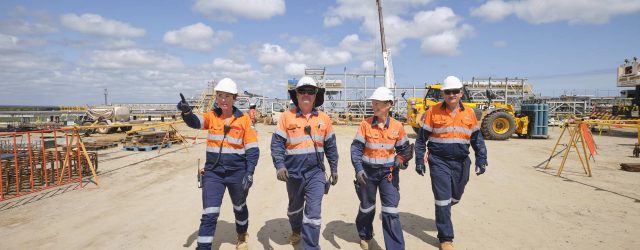Disrupt or die
Posted: 8th December 2022
Posted in: Blog

Posted: 8th December 2022
Posted in: Blog
In 2018 Carillion plc was the second largest construction and facilities management company in the United Kingdom employing 43,000 employees when it went into compulsory liquidation with liabilities of almost £7 billion. A company many considered too big to fail had done just that with massive implications for the wider supply chain, clients, shareholders, pensioners and employees.
The UK Government recognised that something needed to be done to improve the sustainability of the construction industry and it could play a major role by becoming a model client. The Government joined forces with industry to produce a ‘playbook’ to document best practice principles for project procurement, delivery, and governance that was published in December 2020 and updated in September of this year.
Whilst not the same size as Carillion, Clough is one of the biggest contractors in Australia and the news that it has entered administration is no less significant for the construction industry here, especially given that it follows the demise, earlier in the year, of one of the largest commercial builders (Probuild) and is set against a backdrop of rising insolvencies in the sector (construction accounts for 26 per cent of all insolvencies in Australia).
The Australian Constructors Association’s report ‘Disrupt or Die’ sets out the case for urgent transformation of how projects are procured, delivered and governed in Australia and the role that the Federal Government can play.
Whilst the UK and Australia operate different systems of governance, with the UK government having more of a direct role in project delivery, it does not mean that the Federal Government in Australia could not and should not influence reform. With some notable exceptions such as Snowy Hydro and Inland Rail, the Federal Government is not on the business of directly delivering projects but it is in the business of handing out cash.
Currently very few preconditions are placed on how this money is spent but this cannot be allowed to continue. Construction productivity is now worse than it was 30 years ago, women only make up 12 per cent of the construction workforce and construction workers are six times more likely to die from suicide than they are from a workplace incident.
In terms of productivity alone, if construction could catch up with productivity growth in other industries, the nation could be saving $47 billion every year.
Industry has to hold up its hands and accept some responsibility for the position we find ourselves in but like a recovering alcoholic we keep coming back for more and it is time for Government to lock up the liquor cabinet.
It is not necessary for the Federal Government to prescribe how the States should deliver projects via a Playbook or other means but they should coordinate and incentivise reform. The Australian Constructors Association has proposed that this could be done by implementing a rating tool that measures how well Federally funded projects perform in terms of agreed key reform areas. Under the Future Australian Infrastructure Rating (FAIR) initiative, project ratings would be published and lessons learnt shared to drive improved performance. FAIR could be quickly implemented and incorporated into existing governance frameworks with little additional expense or administration.
Importantly, the Federal Government needs to recognise that value for money to the taxpayer is more than just the lowest price for a project at the tender box. It is this mentality, at all levels of government and in the private sector, that has driven the race to the bottom that sees the industry in such a poor state of health.
Value to government is more than just price, it is improvement in sovereign capability, it is permanency of employment, it is improved environment sustainability, innovation and opportunity for all. It is time this is recognised when contracts are drawn up, tenders are assessed and performance measured.
Incremental change will not be enough to address the issues facing the industry. We need to fundamentally transform the way projects are procured, delivered and governed. We need to disrupt or the industry will die.
More information
Download our Disrupt or die report.